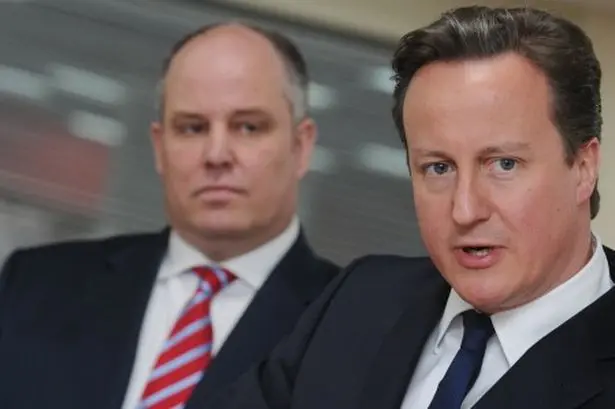The Prime Minister will claim
that this is the first government in modern history to reduce overall domestic regulation for business while in office stating that 800 regulations have already been abolished or simplified – with tens of thousands of pages of red tape still to face the chop.
The Prime Minister will announce plans to make it vastly easier and cheaper for businesses to meet environmental obligations – by March 2015 Defra will have slashed 80,000 pages of environmental guidance saving businesses around £100 million per year
David Cameron speech will say: “Supporting business is a crucial part of our long term economic plan, creating jobs and security for all. That is why, among so many other things, I have insisted on slashing needless regulation. We will be the first government in modern history to have reduced – rather than increased – domestic business regulation during our time in office.
This will make it easier for you to grow, to create jobs and to help give this country the long-term security we are working towards. More than 1.3 million new jobs have been created since I came to office – many of them by small businesses. And I know many of you want to grow further – or may be thinking of employing your first person – but have been put off or held back by red tape.
So we have trawled through thousands of pieces of regulation – from the serious to the ridiculous, and we will be scrapping or amending over 3,000 regulations – saving business well over £850 million every single year. That’s half a million pounds which will be saved for businesses every single day of the year.
I know that while we struggle to bring down domestic regulation, you fear an ever-greater pile of EU-inspired bureaucracy. That’s why I’ve led the fight in Europe to bring an end to this, and continue to press the Commission to implement the 30 recommendations from my Business Taskforce.
This government has already stopped needless health and safety inspections. And we will scrap over-zealous rules which dictate how to use a ladder at work or what no-smoking signs must look like. We’ve changed the law so that businesses are no longer automatically liable for an accident that isn’t their fault. And the new Deregulation Bill will exempt 1 million self-employed people from health and safety law altogether.
Let me just give you a few more crazy examples dreamt up in the past by Whitehall bureaucrats. Employees used to be able to sue their employer if they were insulted by a customer. We’ve changed the Equality Act to stop that. Shopkeepers used to need a poison licence to sell oven cleaner – we’re scrapping that. And today I can announce that we will also:
Make it vastly easier and cheaper for businesses to meet environmental obligations – by March 2015 Defra will have slashed 80,000 pages of environmental guidance saving businesses around £100 million per year.
And as of earlier this month we have scrapped the ridiculous rule that childminders who give food to children have to register as a food business as well as a childminder.
Make no mistake, this government will support you when you need us. This is the government that:
- is cutting £2,000 for every business from your jobs tax
- has provided £1.1 billion package of business rates relief
- is providing £100 million of broadband vouchers to get business online and exporting
- has cancelled the increase in fuel duty, saving the average small business with a vehicle £1,300 on petrol by 2015
- as of today, will give 20,000 small businesses up to £2,000 to help grow
As a business eligible for all of these things, that would be a saving of over £10,000 on these things alone.
So I am here to say we will let you get on with what you do best – enterprising, innovating and – most importantly – creating jobs which give this country the long-term security we need”
Commenting ahead of the Prime Minister’s speech, John Longworth, Director General of the British Chambers of Commerce (BCC) said: “No business could disagree with the government’s commitment to reduce unnecessary red tape. Good progress has been made in removing domestic regulations, and the Prime Minister is right to lead a charge in Brussels to reduce European bureaucracy.
“However reducing regulation is as much about quality as it is about quantity. Removing hundreds or thousands of laws from the statute book will only have an effect if companies on the ground feel that the burden of needless regulation is lifting.
“Britain’s deregulation drive must also not be derailed by costly new laws affecting firms. At present, both tax changes and EU regulations are excluded from the government’s “One-in, Two-out” rule for new regulations. This loophole blunts the impact of the policy. All new regulations, from whatever source, should be scrutinised and their burden minimised as part of this system.”


